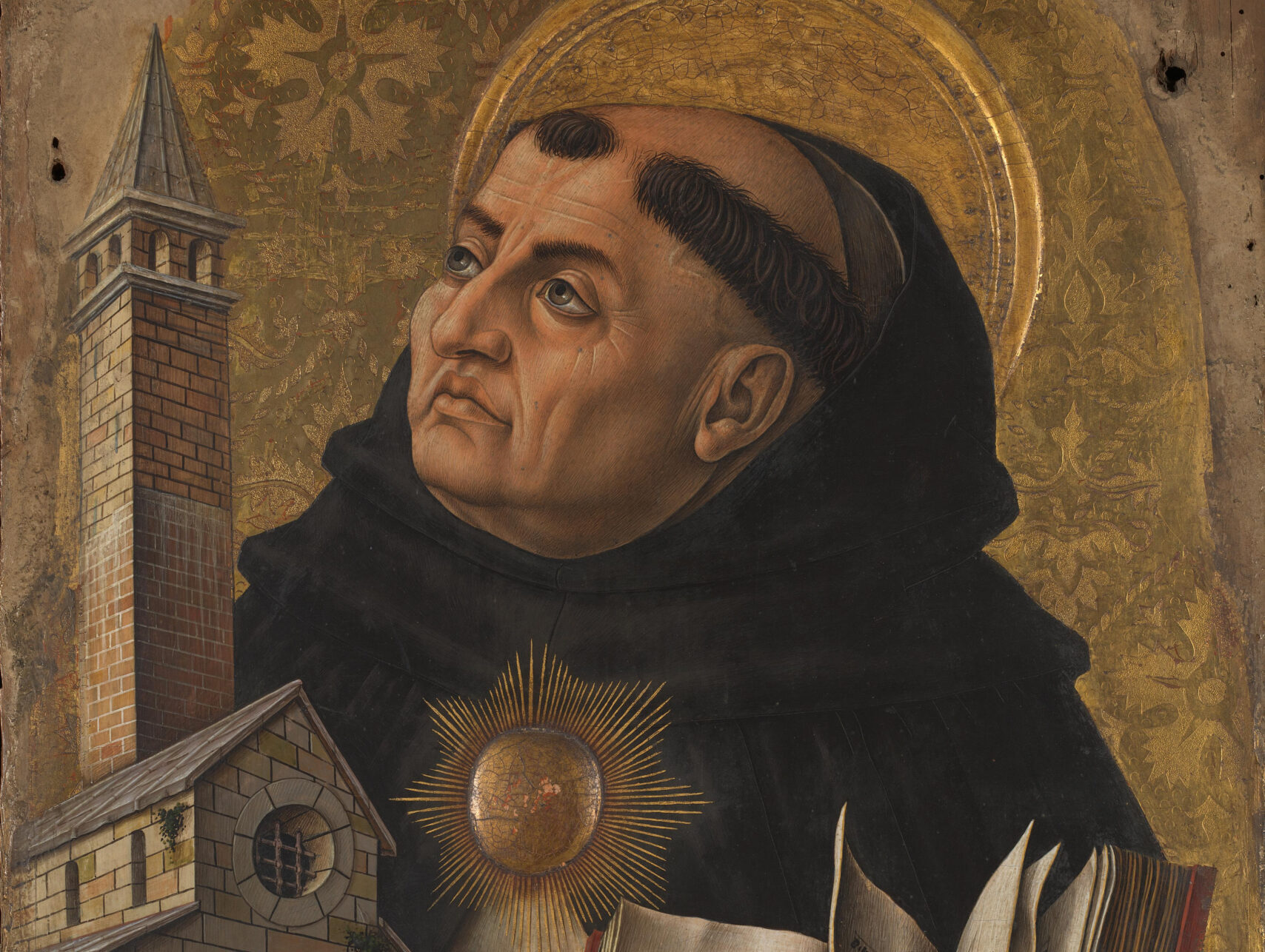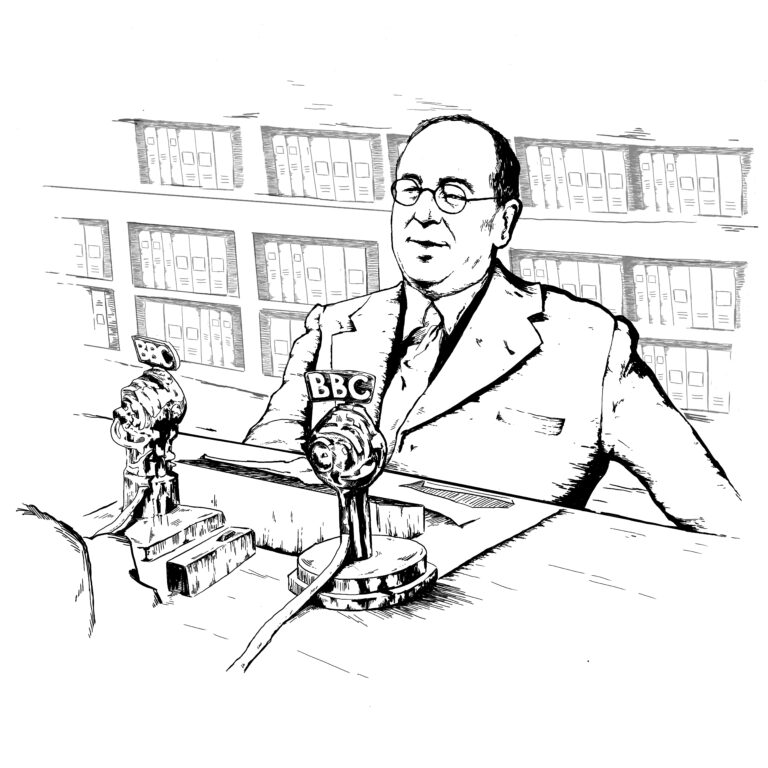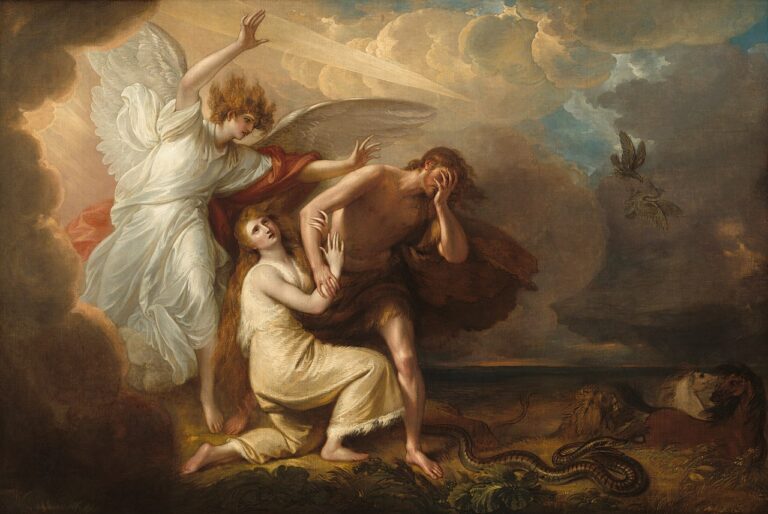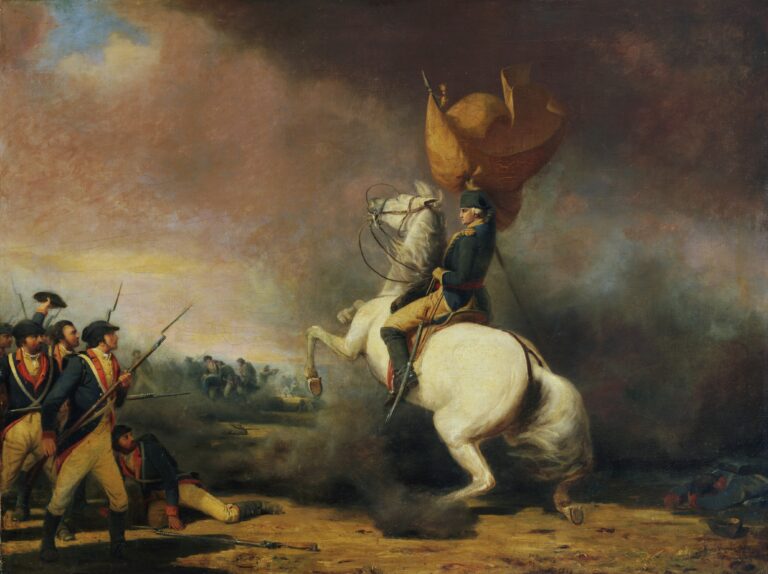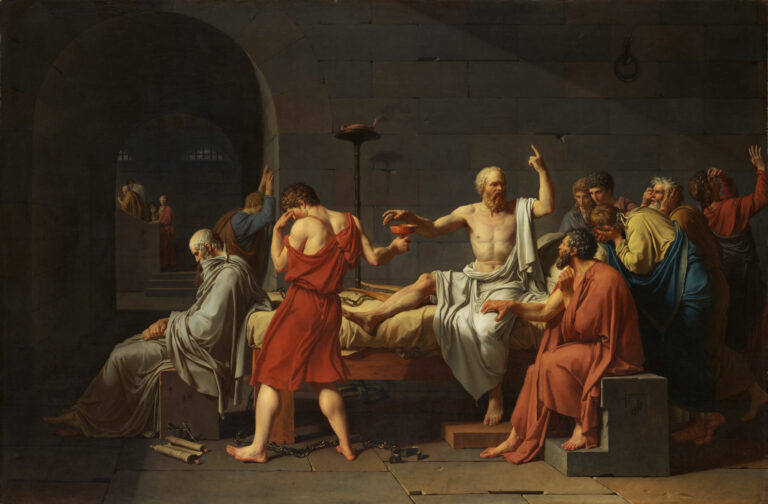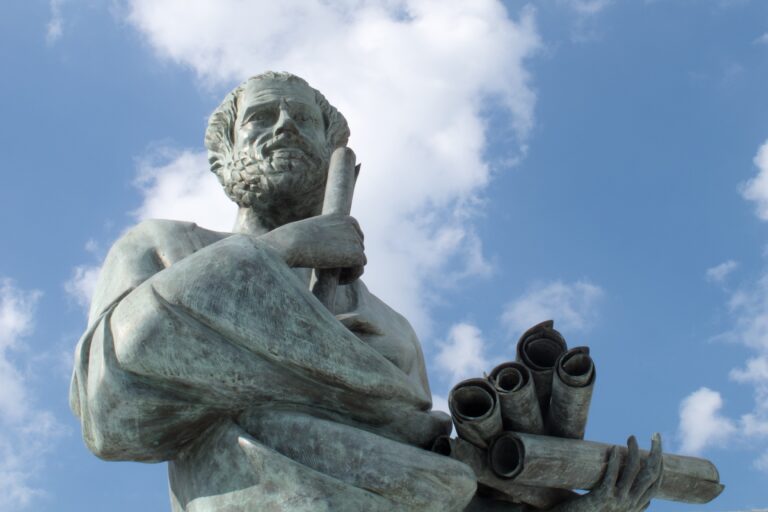Aquinas and America
When I first heard Dr. Nathan Schlueter in “Introduction to Western Philosophy” claim that “you can’t understand fully the Declaration of Independence without Thomas Aquinas,” I was surprised. I’ve studied the Declaration several times without talking about Aquinas. But as Dr. Schlueter reveals, several of Aquinas’ philosophical arguments may indeed help us understand how the theory of the Declaration of Independence fits into the tradition of political philosophy.
In the Declaration, we come across phrases like “Nature’s God,” “the Laws of Nature,” and “self-evident” truths. Aquinas was the first philosopher to explore all of these and tie them together. A self-evident truth, as Aquinas defines it, is a statement that contains its predicate in the notion of the subject. In other words, if we were to say, “all bachelors are unmarried males,” we immediately see the truth of this if we understand what a bachelor is.
So, if we define man as a rational animal, and rationality includes an ability to govern oneself, then the statement that “all men are created equal” is self-evident because of the very definition of man. This does not mean that self-evident truths are obvious to everyone at first glance; they require us to think about what each part of the sentence really means. We must study and learn in order to understand what a man is and what equality requires.
Those equal men are subject to a law of nature that the God of Nature has established. Aquinas helps us understand that since men are rational, they can observe the natural order of the world around them and their natural inclination towards good. As we reflect on those things, we begin to understand a moral law that is built into the natural world. This moral law is not enough on its own to restrain wicked and dissolute men, according to Aquinas. Divine and human laws must give it support.
Thus, Aquinas gives a fuller philosophical argument in line with the Founders as to why all men are equal. He shows that our natural equality is not equality in all aspects but only in our natural rights and duties under the law of nature. He also makes it clear that while nature guides us in what is morally right, we still need human society and politics. And, as Dr. Schlueter points out, all of this points to a creator God who still interacts with His natural order through some sort of divine law, which means that Nature’s God cannot simply be a deistic god who set his creation in motion and then leaves it alone.
God must be a providential God who judges our fidelity to His natural law. In the words of the Declaration, we can have “a firm reliance on the protection of divine Providence” because we know that God is “the Supreme Judge of the world.”
Dr. Schlueter clarifies that none of the Founders were Thomistic scholars and none of the leading Founders were Catholic. It doesn’t seem likely that Jefferson wrote the Declaration with his Summa Theologiae open beside him. Jefferson even explained in subsequent letters that the Declaration is an expression of the common sense of the American mind, and the Founders themselves believed that it can be understood by anyone willing to think about human nature. But Aquinas’ arguments can certainly help us think more deeply about human nature and the principles of the Declaration of Independence.

